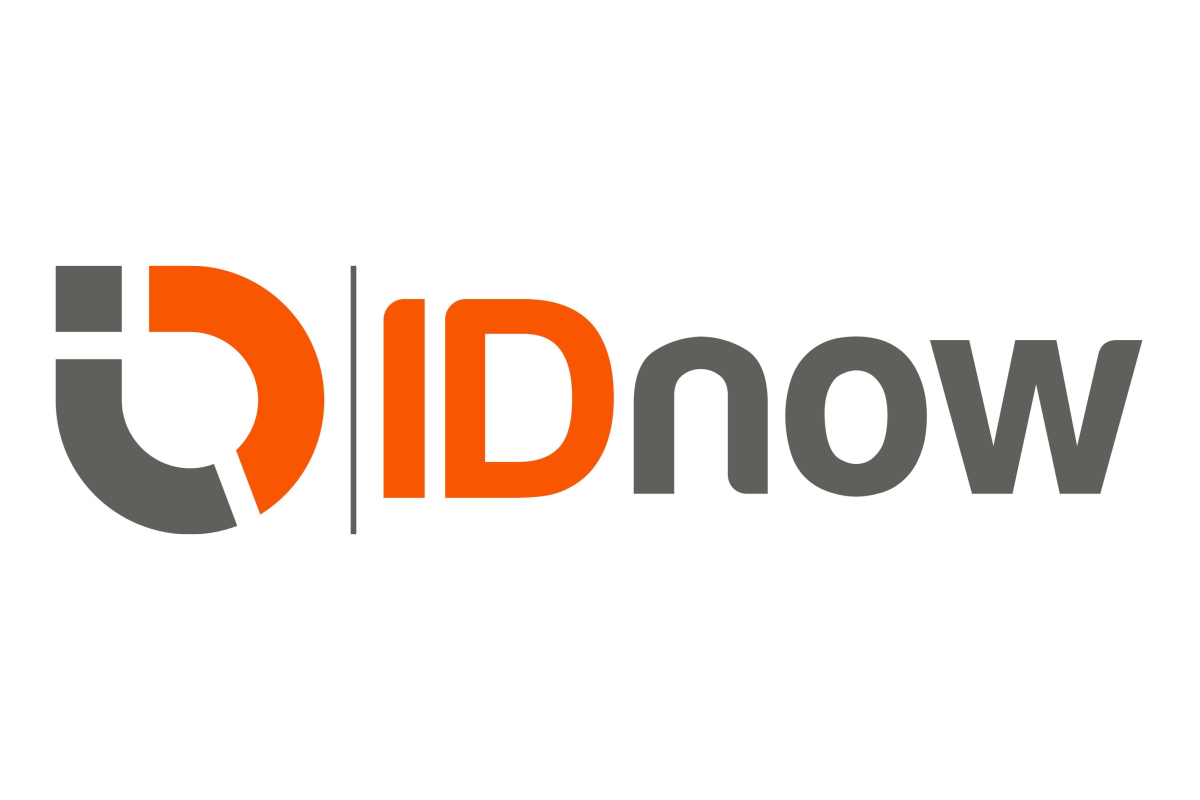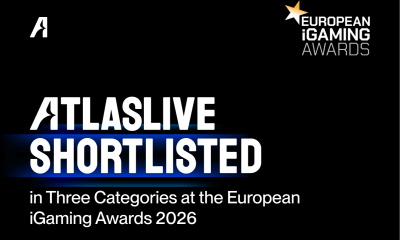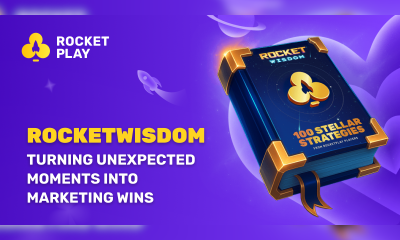Compliance Updates
IDnow introduces automated identity verification for highly regulated use cases

IDnow enables an automated identity verification solution for highly regulated use cases, complying with Anti-Money-Laundering-Law in Europe, including Germany.
IDnow, a leading European Platform-as-a-Service provider for identity verification, is expanding its automated solution AutoIdent for additional highly regulated use cases, including areas regulated by the Anti Money Laundering Act (AML/GwG), such as banks and financial service providers.
IDnow AutoIdent is an AML Act compliant identity verification solution that operates as an automated process and meets the high-security requirement. It serves a wide range of industries and use cases, such as opening a bank account, signing a loan agreement, or onboarding a player for online gaming. Taking advantage of a Qualified Electronic Signature (QES) and existing online bank accounts of the user, it seamlessly blends state-of-the-art technologies with existing identity and banking data into an easy, secure and fully compliant identity verification process.
IDnow AutoIdent including QES, is certified by a conformity assessment body and is approved by an EU Member State National Regulator for issuing QES (Qualified Electronic Signature) according to eIDAS Regulation Article 24 (1) d). The process can include a one-cent-bank transfer, turning it into a fully compliant remote onboarding solution in accordance with the German AML Act – Geldwäschegesetz (GwG), under Section §12 sentence 1 Nr 3. According to the AML law, automated identity proofing in connection with a reference transaction is permitted, pursuant to Article 32 eIDAS.
“Our belief in providing an advanced identity verification platform which increases security improves conversion and streamlines our customers’ onboarding process across geographical borders drives us forward. By making our automated solution AML-compliant with additional regulations, our customers can offer a faster process and therefore a better user experience while ensuring high security and regulatory standards. This gives our customers, who operate in a constantly evolving environment, the peace of mind and the flexibility to choose the solution that meets their needs best,” says Andreas Bodczek, CEO at IDnow.
The IDnow platform, which includes AutoIdent as a building block, effortlessly orchestrates all necessary components into a seamless, secure and AML-compliant identity verification.
Depending on the customer’s needs, the onboarding process offers total flexibility. Further components of the IDnow platform can added, e.g., eSign, the add-on for the digital contract signing opening up additional use cases such as taking out a consumer loan in a wholly digital process.
In recent years, IDnow has expanded its role far beyond offering specific identity verification products and has become an overarching platform for digital identities with several million transactions per year, used by over 800 customers worldwide. In 2021, IDnow acquired the French market leader for identity technology, ARIADNEXT, and the German identity Trust Management AG, enabling IDnow to offer its customers one of the broadest identification solutions through a single, integrated platform.
Powered by WPeMatico
Compliance Updates
Updated FATF Lists of High-risk Jurisdictions

Reading Time: < 1 minute
The Danish Gambling Authority has called attention to FATF’s (Financial Action Task Force) updated lists of high-risk jurisdictions: the Grey List (jurisdictions under increased monitoring) and Black List (call for actions). Among other things, gambling operators must include FATF’s lists of high-risk jurisdictions when risk assessing players.
Jurisdictions listed on the Grey List:
Algeria, Angola, Bolivia, Bulgaria, Cameroon, the Ivory Coast, DR Congo, Haiti, Kenya, Laos, Lebanon, Monaco, Namibia, Nepal, South Sudan, Syria, Venezuela, Vietnam, the Virgin Islands and Yemen.
Jurisdictions listed on the Black List:
Democratic People’s Republic of Korea, Iran and Myanmar
Gambling operators are required to conduct enhanced customer due diligence (EDD) pursuant to section 17(1) of the Danish AML Act, if a player is assessed to impose a higher risk of the gambling operator being misused for money laundering or terrorist financing.
Gambling operators shall conduct this risk assessment based on Annex 3 to the AML Act (high-risk factors) which includes the FATF high-risk country lists (the so called black list and grey list)
It is not required that gambling operators perform EDD if a country is listed on the FATF’s list. EDD are only a requirement for players from jurisdictions listed in the EU Regulation of High Risk Third Country list pursuant to. 17(2) of the AML Act.
The post Updated FATF Lists of High-risk Jurisdictions appeared first on European Gaming Industry News.
bingo
Spillemyndigheden: New licence type coming soon: Bingo via walkie-talkie and local radio

Reading Time: 2 minutes
Soon it may be possible to play bingo via walkie-talkie and on local radios. A bill is currently being considered by the Danish Parliament to introduce a new type of licence for bingo via walkie-talkie and local radio. The Danish Gambling Authority expects the rules to come into force as early as 1 January 2026.
If the bill is passed, providers of walkie-talkie bingo and local radio will be able to apply for a licence from 1 January 2026. The Danish Gambling Authority will update this news article when the rules are finally adopted.
How to apply for a licence
If you want to offer bingo via walkie-talkie or radio, you need a licence from the Danish Gambling Authority. You can expect to apply as early as 1 January 2026.
When applying for a licence, you must use the form “Apply for a walkie-talkie or radio bingo licence” (no. 1-02). The form will be available on the page “revenue-restricted licenses”.
The application form will also be published in a digital version, but it will not be available on virk.dk until January.
The Danish Gambling Authority strives to process all applications as quickly as possible.
As an applicant, you will be assigned a contact person who can guide you through the legislation during the application process. The contact person will generally remain the same throughout the period of validity of your licence.
Report on the first year of offering games
Licences for radio and walkie-talkie bingo are regulated by the Gambling Act and the Executive Order on Online Casino. The legislation sets out a number of requirements for licensed gambling operators. Among other things, the licence holder must complete a report on the first year of offering gambling.
The report is prepared one year after the licence has been put into use and must be sent to the Danish Gambling Authority no later than 14 months after the date when the licence has been put into use.
The licence holder can fill out the report themselves.
The report must account for how the licence holder has provided gambling in accordance with the conditions of the licence and legislation during the past year.
The report template will be available on the Danish Gambling Authority’s website as form no. 1-04.
The post Spillemyndigheden: New licence type coming soon: Bingo via walkie-talkie and local radio appeared first on European Gaming Industry News.
Andrew Jackson
Scientific Games Adds to Information and Security Management Certifications, Continues Setting Global Industry Gold Standard

Reading Time: 2 minutes
Scientific Games’ UK, Channel Islands and Ireland facilities are the latest in the company’s global operations to achieve international certifications, further strengthening its information security framework and commitment to setting the lottery industry’s gold standard for integrity. The newest certifications are from the World Lottery Association and the British Standards Institute, as Scientific Games continues to expand its business serving government-regulated lotteries worldwide.
Scientific Games’ new National Logistics Centre in Warrington, UK serving The National Lottery, SG Studios digital game development center in Jersey, Channel Islands and lottery retailer technology facility in Ireland have earned certification to the WLA’s Level 2 Security Control Standard. This international security standard for WLA members specifies the required practices for an effective security management structure to maintain the integrity, availability and confidentiality of information vital to the company’s secure operation.
All three facilities also earned a Certificate of Registration for Information Security Management System, achieving the International Standards Organization’s ISO/IEC 27001:2022, the world’s best-known standard for information security management systems. This certification confirms that Scientific Games has implemented a comprehensive framework to manage risks related to data security in accordance with internationally recognised best practices and principles.
“Earning these certifications is about much more than compliance—it’s about trust. Our customers and their players rely on us to protect data and uphold the integrity of every transaction. These certifications reflect the dedications of our teams in the UK, Channel Islands and Ireland, and across our worldwide operations, to maintaining the highest standards of excellence when it comes to information security,” said Andrew Jackson, VP of Corporate Responsibility for Scientific Games.
Scientific Games has also achieved international certifications for operational best practices, including Quality Management Systems (ISO: 9001), Environmental Management (ISO: 14001), Occupational Health and Safety (ISO: 45001) and the World Lottery Association’s Responsible Gaming certification.
With operations spanning five continents and serving 150 lotteries in 50 countries, Scientific Games earned its latest information security management certifications following an extensive independent, international auditing process.
The post Scientific Games Adds to Information and Security Management Certifications, Continues Setting Global Industry Gold Standard appeared first on European Gaming Industry News.
-

 Andrew Jackson5 days ago
Andrew Jackson5 days agoScientific Games Adds to Information and Security Management Certifications, Continues Setting Global Industry Gold Standard
-

 Eastern Europe5 days ago
Eastern Europe5 days agoHIGHLIGHT GAMES LIVE IN ROMANIA WITH FORTUNA ENTERTAINMENT GROUP
-

 Best Solutions for iGaming Industry in Romania 20255 days ago
Best Solutions for iGaming Industry in Romania 20255 days agoSoft2Bet Nominated for Best Solutions for iGaming Industry in Romania 2025
-

 Australia5 days ago
Australia5 days agoBetMakers Signs Multi-Year Agreement to Launch CrownBet
-

 Latest News5 days ago
Latest News5 days agoAtlaslive Shortlisted in Three Categories at the European iGaming Awards 2026
-

 Nasdaq:GLPI4 days ago
Nasdaq:GLPI4 days agoGaming and Leisure Properties Expands Board of Directors With Appointment of Michael Borofsky
-

 Latest News5 days ago
Latest News5 days agoHow RocketWisdom Turned From An Internal Activity Into a Marketing Case
-

 Nasdaq:GMGI4 days ago
Nasdaq:GMGI4 days agoGolden Matrix Group (NASDAQ: GMGI) Appoints Mr William Scott to Build on Success and Accelerate Growth











